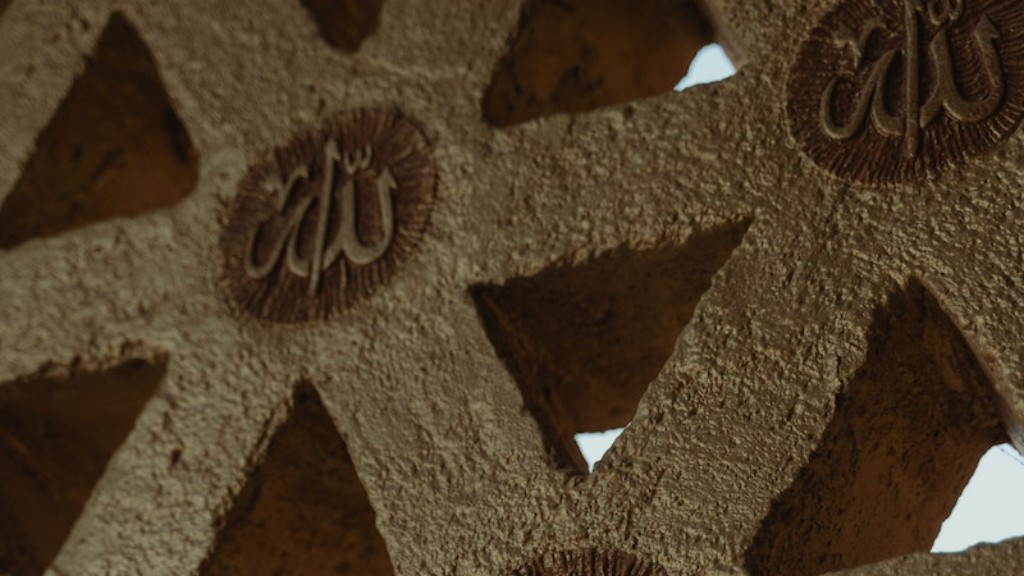In Islam, Suhoor is the meal consumed early in the morning before the fajr prayer. It is considered to be a Sunnah to eat Suhoor, and it is thought to be one of the best ways to start the day. The blessed Prophet Muhammad (peace and blessings be upon him) said: “The difference between our fasting and that of the people of other religions is that we break our fast at a time when they are eating.” (Sahih Bukhari)
Suhoor is the meal that is eaten before dawn during the month of Ramadan.
Why do Muslims eat suhoor?
Suhur is an important meal for Muslims because it is the last meal eaten before fasting from dawn to sunset during the month of Ramadan. Suhur is regarded by Islamic traditions as a benefit of the blessings in that it allows the person fasting to avoid the crankiness or the weakness caused by the fast.
Suhoor is the most important meal of the day for Muslims who are fasting. It is a pre-dawn meal that is eaten before the start of the day’s fast. A well-balanced meal is essential for providing the necessary energy to maintain fitness levels throughout the day.
What is the difference between suhoor and iftar
Iftar is the meal to break the fast after sunset. Typically, people will enjoy dates, dried apricots and Ramadan juices, before heading to evening prayer. After that, large meals are the norm, usually with family and friends. Suhoor is a meal taken just before sunrise, before the day of fasting starts.
Ramadan is the ninth month of the Islamic calendar, during which Muslims fast from dawn to dusk. Fasting is one of the five pillars of Islam, and is obligatory for all Muslims who are able to do so. Muslims fasting in Ramadan usually start their day just before sunrise, eating their last meal and performing their dawn prayers, known as fajr. The meal eaten at this time is known as suhoor and comes from the Arabic word seher, meaning the last third of the night. Muslims break their fast at dusk with a meal known as iftar, and perform the evening prayer, known as maghrib.
What should be avoided during suhoor?
Fried-foods are greasy and fried food, such as fried dumplings, samosas, pastries and oily curries, which should be avoided. They are loaded with fat and stored in the body as fatty tissue. Eating fatty foods after long hours of fasting causes acidity and indigestion.
Eating foods that are high in fat at suhoor can lead to indigestion and other digestive problems. It is best to avoid these foods if possible and opt for healthier options.
Can you drink water during Suhoor?
We should not drink huge amounts of water during Suhoor because our kidneys get rid of it in a few hours. It is better to extend the amount of water we drink to the hours extending between Iftar and Suhoor. This will help keep our bodies hydrated and reduce the risk of dehydration during the fast.
It is very important to drink water between Iftar and Suhoor to avoid thirst after Suhoor. Hence, make sure you drink at least 2 L of water to stay hydrated and store water the next day of fast.
Does skipping Suhoor break your fast
Skipping suhoor can have an impact on your fast, as it means your body will have to rely on your previous meal for nourishment throughout the day. If you skip suhoor, you may find yourself feeling more tired or weak as the day goes on, as your body won’t have anything to keep it going. It’s important to make sure you’re eating a nutritious meal at suhoor to help you get through the day.
During Ramadan, Muslims abstain from eating any food, drinking any liquids, smoking cigarettes, and engaging in any sexual activity, from dawn to sunset. That includes taking medication (even if you swallow a pill dry, without drinking any water).
Ramadan is a time for spiritual reflection, prayer and community, and is one of the Five Pillars of Islam. The fasting is intended to bring the faithful closer to God and to remind them of those less fortunate.
What should I order for suhoor?
Ramadan is a time where Muslims fast from dawn to dusk. Suhoor is the meal eaten before dawn, and it is important to make sure that it is nutritious so that you have the energy to get through the day. Here are a few suggestions for foods that will help you stay hydrated and energised:
Eggs: They are filled with protein, which will help to keep you feeling full and give you sustained energy throughout the day.
Oatmeal: A protein-rich meal will help to regulate your blood sugar levels and keep you feeling fuller for longer.
Fish/Chicken: Fish is known for being a vitality-boosting food, so it is a great choice for suhoor. Chicken is also a good option as it is a lean protein source.
Fruits and Vegetables: These are packed with vitamins and minerals, and they will help to keep you hydrated.
Nuts: Nuts are a great source of energy, and they will help to keep you feeling full until it is time to break your fast.
There are certain people who are exempt from fasting during the Islamic month of Ramadan. This includes children who have not yet reached puberty, the elderly, those who are physically or mentally incapable of fasting, pregnant women, breastfeeding mothers, and travelers. These exemptions are based on Islamic law and are meant to ensure that everyone is able to observe Ramadan in the best way possible.
What did the Prophet say about Suhoor
As mentioned in the hadith of Anas ibn Malik, it is sunnah for the fasting person to eat suhoor as it is blessed. It is also recommended to eat suhoor as it helps to sustain the fast and prevents one from feeling weak or dizzy.
Suhoor is an important meal for Muslims during the holy month of Ramadan. It is the last meal before the sun rises and the day of fasting begins. Suhoor should be a nutritious meal that will help sustain a person during the long day ahead. Muslims should take care to eat and drink wisely during Suhoor, as the goal is to avoid feeling weak or hungry during the fast.
What do Muslims eat before fasting?
Eating a nutritious sehri is an important part of a healthy Ramadan. Some of the elements to include in your sehri are whole grains, fresh fruits and vegetables, and protein. Whole grains are a great source of energy and help to keep you full until iftar. Fresh fruits and vegetables are packed with vitamins and minerals, and protein helps to build and repair your muscles. including these items in your sehri will help you to have a healthy and successful Ramadan.
The time for stopping eating is ten minutes before Fajr time. So, if the Fajr time is 6:12 am, one should stop eating around 6 am. Permitted time for eating suhur, however, extends up to 6:12 am, after which time it is considered unlawful. Therefore, if anyone deliberately did so, the fast is considered broken.
Conclusion
Suhoor is a meal eaten by Muslims before dawn during the month of Ramadan.
Suhoor is the pre-dawn meal eaten by Muslims during the holy month of Ramadan. The meal is eaten to increase one’s strength and energy for the day ahead. Although suhoor is not mandatory, it is encouraged by the prophet Muhammad.


